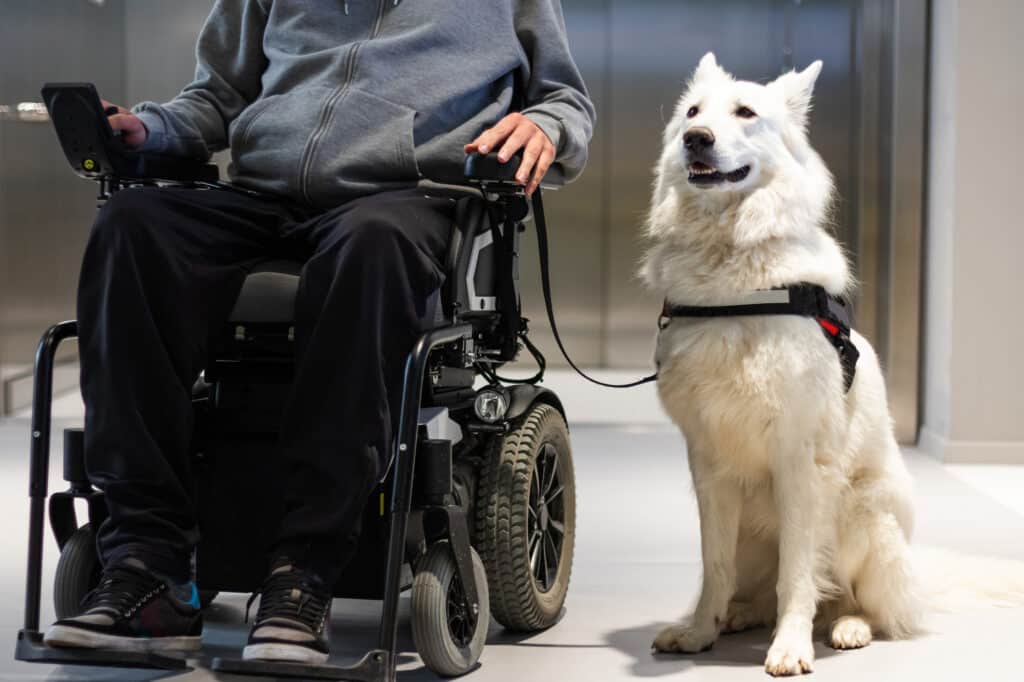
Service dogs have become increasingly popular over the years for individuals with disabilities. These specially trained dogs provide important assistance and support to people with various physical and mental health conditions. However, getting a service dog is a big commitment and requires careful consideration. Here are 20 essential things you need to know before getting a service dog to ensure you are well-prepared for this life-changing decision.
1. Understand service dog terminology:
Service dogs are specially trained canines that perform specific tasks to assist individuals with disabilities. They are protected by the law and have access to public places. It’s important to understand the difference between a service dog, an emotional support animal, and a therapy dog to determine which one you would require.
2. Identify your needs and eligibility:
Before getting a service dog, it’s crucial to identify your specific needs and determine if you are eligible for a service dog under the Americans with Disabilities Act (ADA). Different disabilities have different requirements, so it’s important to research and consult with professionals to ensure you meet the necessary criteria.
3. Research service dog organizations:
There are various service dog organizations that provide well-trained dogs to individuals with disabilities. It’s important to thoroughly research and choose a reputable and accredited organization that suits your needs and values.
4. Consider the cost:
Acquiring and maintaining a service dog can be expensive. It’s essential to consider the financial commitment involved, such as the cost of purchasing or training a service dog, veterinary care, food, grooming, and equipment needed for their care.
5. Patience is key:
Training a service dog can be a long and challenging process. It requires patience and consistency. Be prepared for the time and effort it takes to train and bond with your future service dog.
6. Prepare your home:
Making your home safe and accessible for a service dog is vital. Remove potential hazards, ensure proper fencing if needed, and create a relaxing environment for your dog to settle into their new home.
7. Understand legal rights:
Service dogs are protected under the law, and it’s important to understand your rights as a service dog handler. Familiarize yourself with the ADA regulations and guidelines to ensure you can advocate for your rights when necessary.
8. Training requirements:
While service dogs undergo extensive training before placement, they still require ongoing training and reinforcement to maintain their skills and behavior. Be prepared to dedicate time and effort to continue training your service dog even after they are placed with you.
9. Public interactions:
Getting a service dog means you will receive constant attention and questions from the public. It’s important to be prepared for these interactions and educate others on service dog etiquette and boundaries to ensure a smooth and pleasant experience for both you and your dog.
10. Ongoing veterinary care:
Like any other pet, service dogs require regular veterinary care. Budget for routine check-ups, vaccinations, and preventive treatments to ensure your service dog remains healthy and fit for their duties.
11. Physical and mental exercise:
Service dogs need regular physical exercise to keep them physically fit and mentally stimulated. Incorporate daily exercise routines and mental stimulation activities to keep your service dog happy and healthy.
12. Grooming and hygiene:
Grooming requirements vary depending on the breed and individual dog. Ensure you are prepared for regular grooming sessions, including brushing, bathing, nail trims, and dental care, to maintain your service dog’s hygiene and appearance.
Read: How Regular Grooming Keeps Your Pet Healthy?
13. Trauma history and recovery:
Some service dogs are rescues or have undergone traumatic experiences before their training. Be prepared to provide your service dog a safe and secure environment, and be patient as they adjust and recover from their past experiences.
14. Emotional support and companionship:
Service dogs provide not only physical assistance but also emotional support and companionship. They become an integral part of your life, so be ready to meet their emotional needs and cherish the bond you will develop with your service dog.
15. Public access training:
Service dogs require extensive public access training to ensure they are well-behaved and can navigate various environments safely. Be prepared to work on socializing your service dog and expose them to different situations and distractions.
16. Accommodation and travel:
When traveling or staying in accommodations, it’s important to understand the laws and regulations regarding service dogs. Familiarize yourself with the requirements and necessary documentation to ensure a smooth and hassle-free experience during travel or hotel stays.
17. Backup plan:
It’s crucial to have a backup plan in case your service dog becomes ill, injured, or retires. Consider having a support system in place and working on a contingency plan to ensure you have assistance or access to a replacement service dog if needed.
18. Emotional and mental preparedness:
Getting a service dog is an exciting and life-changing decision but it can also be emotionally challenging. Be prepared to handle the responsibility, the attachment you will form with your service dog, and the adjustments you may need to make in your daily life.
19. Support system:
Having a strong support system can make a significant difference in your journey with a service dog. Seek support from family, friends, and other service dog handlers to share experiences and receive guidance when needed.
20. Be a responsible handler:
As a service dog handler, it’s important to be a responsible advocate for service dog rights and respectful towards others. Continue educating yourself and be an ambassador for the service dog community.
Conclusion:
Getting a service dog can be a life-changing experience for individuals with disabilities. It provides much-needed assistance, support, and companionship to help navigate daily life. However, it’s important to thoroughly research, plan, and prepare for the responsibilities and challenges involved in owning a service dog. With the right knowledge, support, and commitment, a service dog can greatly enhance your life and independence.



